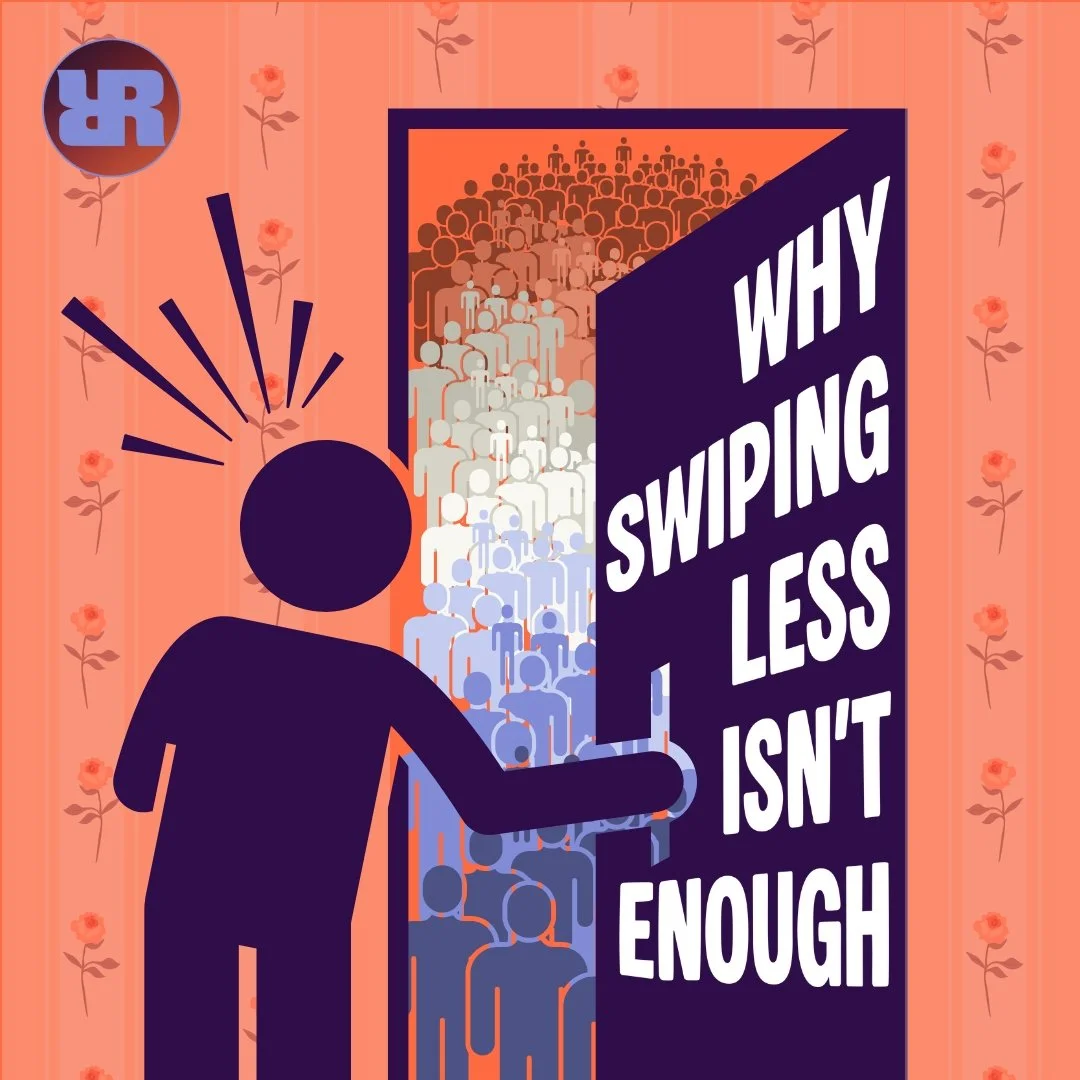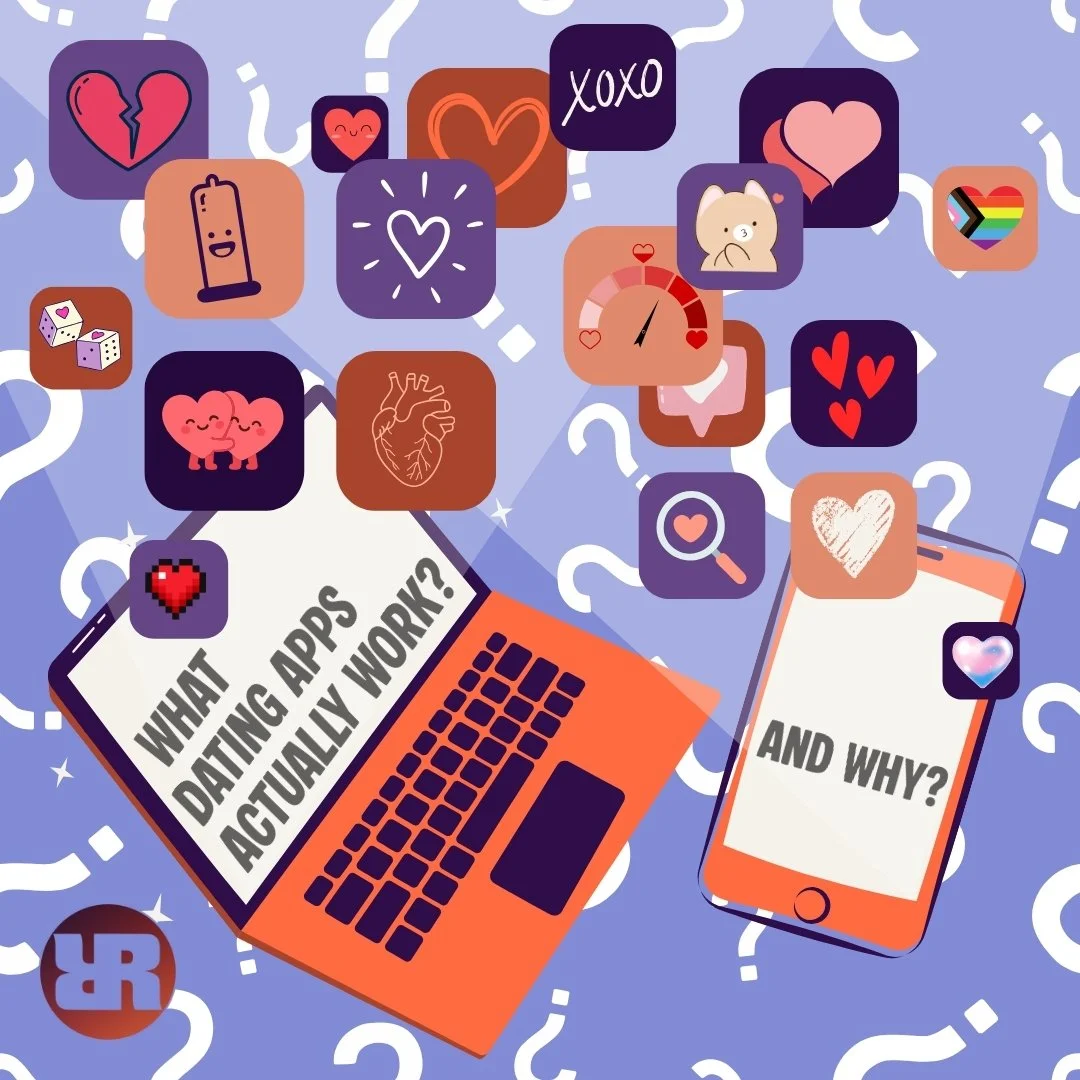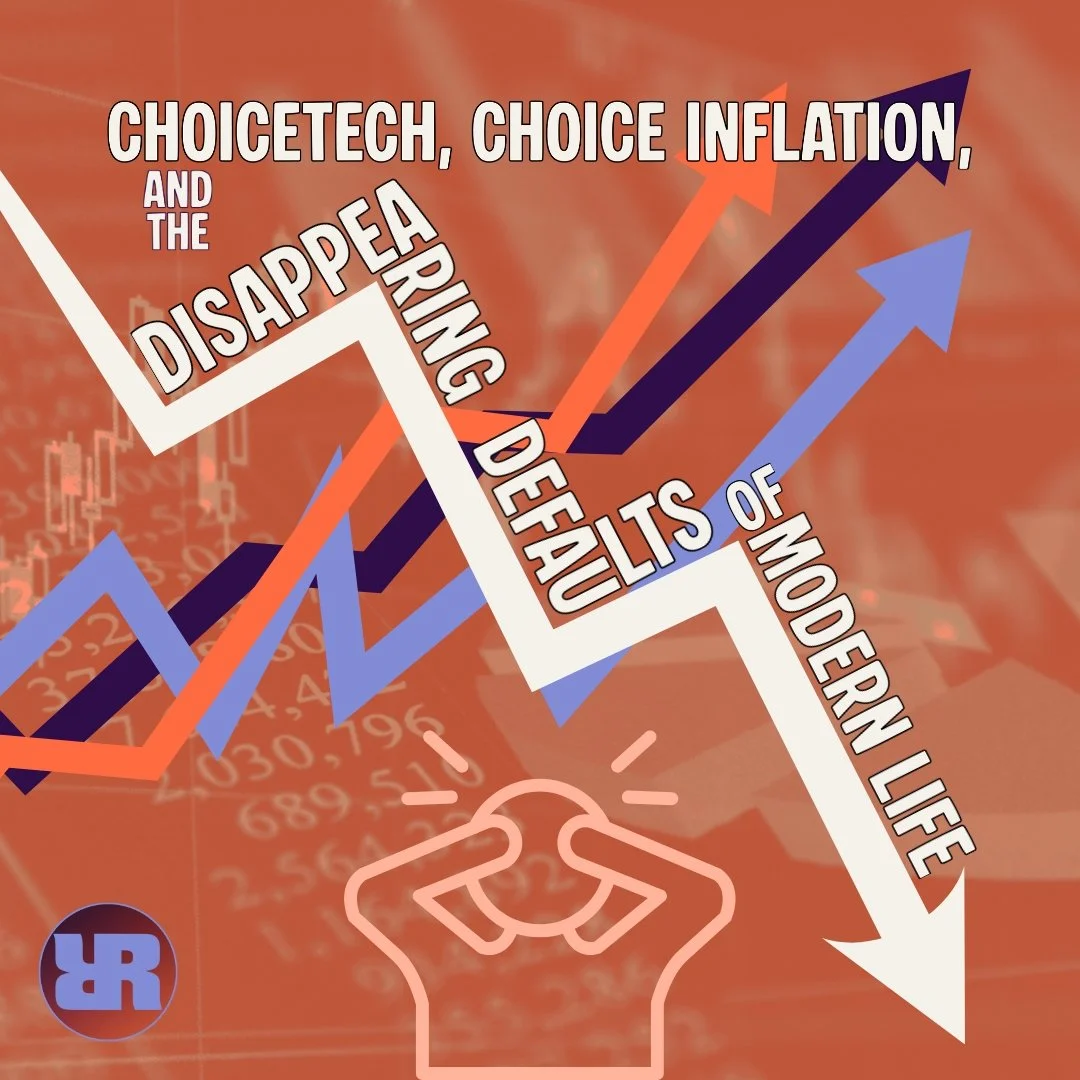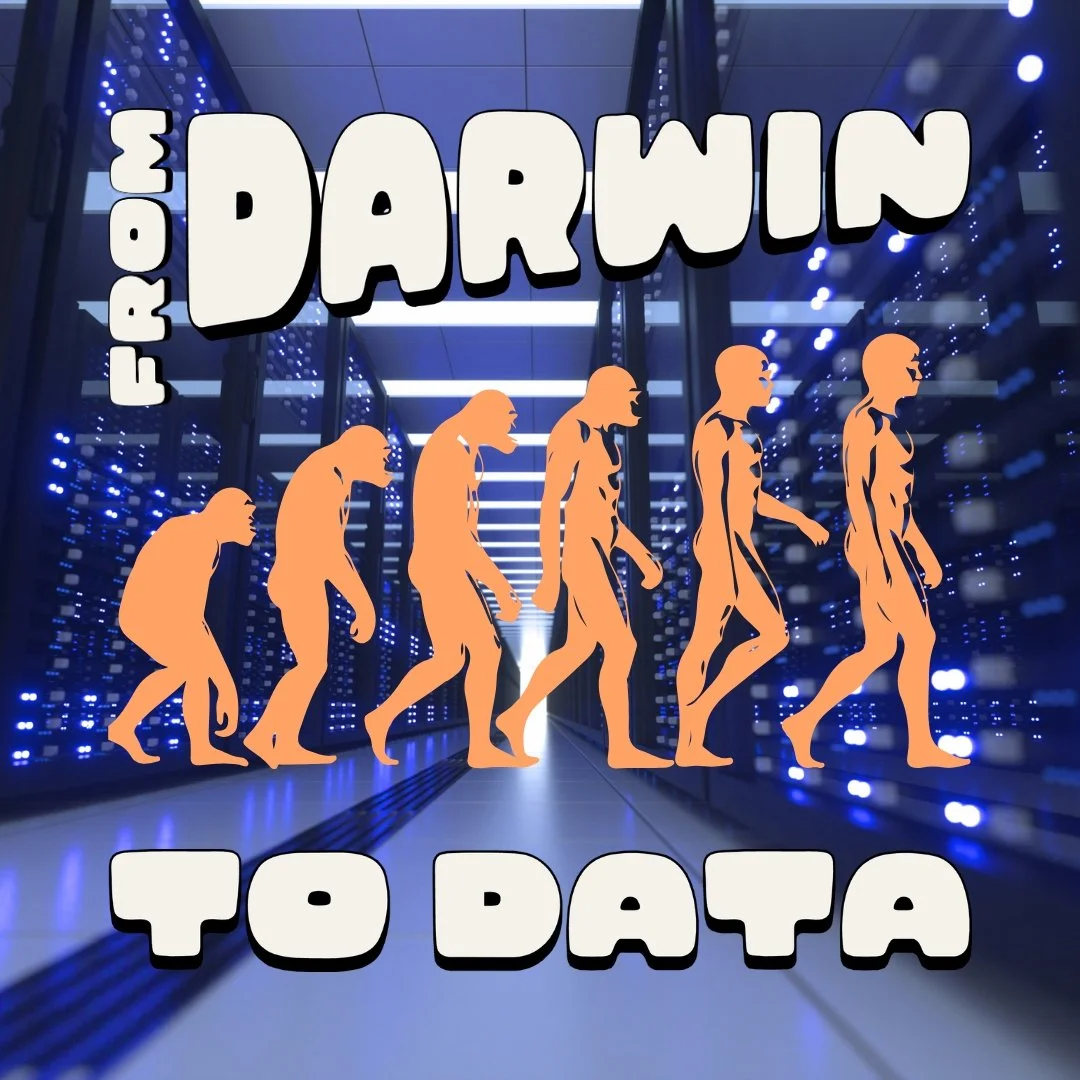
Why Swiping Less Isn’t Enough
“Just swipe less.”
It’s become one of the most common pieces of advice in modern dating, usually delivered with a knowing sigh, as if the problem with online dating is simply too much.
And sure, there’s truth in the idea that endless swiping can lead to burnout, numbness, and decision fatigue. But reducing online dating to a question of volume—more or less—misses the real issue entirely.
The deeper problem is the mismatch between effort and payoff. Too much frustration. Too much exposure to what you don’t want and almost none of what you do want.
Because swiping less doesn’t actually fix the problem.
It just shrinks the environment. It's just less, not necessarily better.

What Dating Apps Actually Work—and Why
What Online Dating App Is the Best? And Why That Question Rarely Leads to Better Dates
Searching for the best online dating app? Learn why no dating site works the same for everyone and how to choose an app that actually supports better decisions and healthier dating.
If you’ve ever typed “what online dating app is the best” or “what dating site actually works” into Google, you’re not alone. I see this question constantly in my work as a decision-making strategist, because it shows up at the exact moment people realize that effort alone isn’t translating into better dating outcomes. Millions of people ask some version of this question every year, hoping there’s a clear winner, one app that finally makes dating feel easier, more successful, or less exhausting.
Here’s the honest answer:
There is no single best online dating app.
But there are apps that work better—or worse—depending on how you make decisions.
And that difference matters far more than most people realize.

Choicetech, Choice Inflation, and the Disappearing Defaults of Modern Life
Think about how often you get stuck on simple decisions: What to watch tonight, what to eat for lunch, whether to swipe left or right. Netflix queues, cereal aisles, and dating apps all promise to make life better, yet they bury us under endless options. These aren’t just small annoyances. They point to a bigger reality: we’re living in a world where the very tools meant to expand our choices also flood us with information, leaving us stretched thin.
And the stakes are high. This flood of options doesn’t just slow us down; it drives burnout, pushes us toward whatever the algorithm favors, and leaves us drowning in information overload while constantly reinventing routines that used to run on autopilot. Our ability to decide well is under pressure every single day. But this moment also carries possibility: it gives us a chance to question old patterns that never served us and experiment with new ways of living that might work better.
In this essay, I’ll explore four forces shaping that pressure: choicetech, choice inflation, information overload, and decision fatigue. You may not have heard of the first two before—that’s because I coined them through Remake The Rules to name dynamics that are everywhere but rarely recognized. We’ll look at how each one works, how they feed into each other, and why they matter for the way we live and work. Naming them isn’t just an academic exercise—it’s a way of giving ourselves power. When we can see these forces clearly, we can begin to work with them instead of against them.

Finding Yourself in the Stars
Astrology, decision fatigue, and the search for meaning in the Information Age
We live in a moment where little feels solid. Institutions are crumbling, algorithms shape our realities, and the pressure to always know—and know what to do next—is relentless. In this climate of collapse and overload, it makes sense that people are drawn to systems that promise continuity—even if they don’t promise certainty. One of those frameworks is astrology.
Astrology is having a resurgence—not because it has newfound scientific legitimacy, but because it meets a deep cultural need. With so much exhaustion and disorientation from trying to navigate a world where the usual sources of stability have eroded, its resurgence makes sense. In an age shaped by information overload and the ever-expanding influence of digital systems, systems like astrology—longstanding, symbolic, and widely accessible—offer a kind of continuity that feels increasingly rare.

From Darwin to Data
How AI Continues Humanity’s Greatest Reframing
Throughout history, humans have struggled with being decentered. There is a long pattern of resisting the idea that humanity is part of larger systems—ecosystems, planetary forces, technologies, even unconscious drives—preferring to imagine ourselves as exceptional, sovereign, and in control. But history is full of humbling events that disrupted that narrative.
The Copernican revolution dismantled the belief that Earth was the center of the universe. Evolution placed humans squarely within the animal kingdom. The discovery of the unconscious mind challenged the idea that people are fully rational or self-knowing. The climate crisis continues to expose the limits of control and the consequences of denial. Each of these moments offered disorientation—but also a chance to recalibrate.
Artificial intelligence joins this lineage of humbling forces. It poses a profound challenge to assumptions about cognition, creativity, and decision-making. But as with previous disruptions, this humbling offers not just a threat to human exceptionalism—but an invitation to rethink what it means to be human.

Default Thinking in a Demanding World: We Upgraded Our Tools, Not Our Thinking.
Imagine being dropped into a high-powered commercial kitchen and asked to prepare a five-course gourmet meal. Around you are dozens of high-tech appliances you’ve never used, industrial quantities of ingredients you don’t recognize, and a recipe you barely understand. Oh, and the meal needs to be ready in an hour.
Most of us would be overwhelmed, confused, maybe even panicked. And if what we managed to produce was far from five-stars? That would make sense. Most of us haven’t built the skills to prepare anything very advanced. The expectations are off. The tools are unfamiliar. And the gap between what we’re being asked to create and what we know how to do is massive.
You’d probably fail—because you weren’t prepared for this kitchen.
Now imagine this: what if I told you this is exactly how many people are trying to make life decisions today? We rarely stumble into a commercial kitchen by accident—but more and more, we do find ourselves making some of our most important life decisions in unfamiliar, high-powered information environments.

Where Should We Eat?: What Dinner Teaches Us About Modern Decision-Making
Everyone’s had that conversation: “What do you want for dinner?” “I don’t know, what do you want?” “Anything’s fine.” “Okay, how about Thai?” “Ugh, not in the mood for Thai.”
It’s a minor friction most of us have encountered hundreds of times—two people, trying to make one small decision together. But even something as simple as dinner can reveal a lot about how collaboration breaks down.

Dating Apps Can’t Solve Your Love Life; But They Can Help You Make Better Choices
Dating apps won’t solve your love life—but they can absolutely help you make smarter, more aligned decisions.
Dating apps offer access—not guarantees. Algorithms are trained on user behavior, not your unique emotional needs. When you rely on an app to "just work," you’re outsourcing critical thinking.
Instead: Start using apps as an information exchange platform.
Every profile, prompt, and conversation is a chance to learn what energizes you, what drains you, and what patterns keep repeating.

Choosing Wisely: Building the Skills for a Complex Future
Our Choices Make Us—The People We Become and the Lives We Live.
From this perspective, there is no endeavor more important than making good choices: freely, intentionally, and with the resources to do so. Yet, making choices has never been simple, and as our world evolves, so too must our approach to decision-making.

Making Choices: Love, Leadership, and Tech
If the goal of Remake The Rules is to offer a better way forward for people feeling overwhelmed, constrained, and misunderstood by our increasingly pervasive human-techno systems, then addressing both personal and professional aspects is essential. These systems shape how we make decisions, form relationships, and navigate the questions that define our lives—and ignoring either would limit the impact and relevance of this work.

Appreciating Kwanzaa as an Outsider: A Celebration of Intentional Tradition
So often, the systems and traditions we inherit don’t serve us. Yet Kwanzaa reminds us that we’re not powerless in these moments. We can reimagine, reclaim, and create something entirely new—something that honors who we are and what we stand for.

Dating Apps: Information Exchange Platforms, but Are We Asking the Right Questions About Safety?
At their core, dating apps are platforms designed to facilitate information exchange — a place where we share snippets of our lives, preferences, and desires, all in the hope of finding someone compatible.
But here's the thing: information isn't just about shared hobbies or interests. One of the most critical pieces of data you should extract from these platforms is information about safety — both physical and psychological.

Platform-Hopping and “Dear Algorithm”: Evolving Rituals in a Fragmented Digital World
In recent weeks, many people have begun rethinking where—and how—they engage online. As users move between platforms, they are reassessing their digital spaces, asking: How can I make these experiences work and feel better for me? This shift is evident in the rise of “algorithmic intentions,” with users now directly addressing “The Algorithm,” making specific requests: “Dear Algorithm, bring me people who get it,” or “Please, just show me good news today.”





